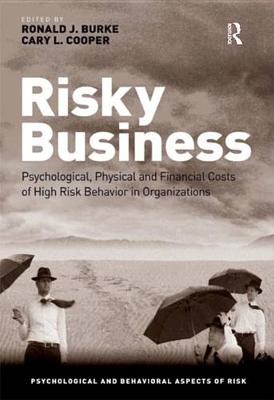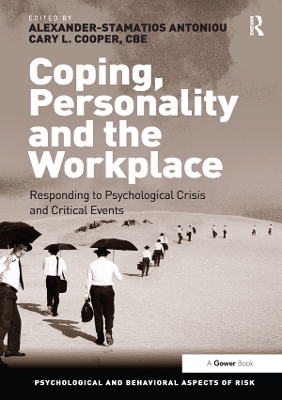Psychological and Behavioural Aspects of Risk
2 total works
What are the financial and psychological costs of risky behavior in business to the individuals concerned and their organizations? Risky Business provides a perspective on addictive behaviors such as gambling, drug taking and even addiction to work; criminal behaviors such as theft and corruption; and behaviors such as aggression and violence. The authors then look at their implications to employee and organizational health within the context of the workplace environment; an environment that is often synonymous with psychological demands, stress, long hours, overwork and shortages of staff or other essential resources. An essential guide for occupational psychologists, human resource specialists, risk managers and for researchers in this field.
Coping, Personality and the Workplace
by Alexander-Stamatios Antoniou and Cary L. Cooper
Published 18 December 2015
How an individual responds to crises and critical incidents at work, both immediately and subsequent to the event, is heavily influenced both by personality characteristics and their use of coping strategies. These can, in turn, be affected by levels of education, gender and even the profession within which the individual is working. Coping, Personality and the Workplace offers theory, research and practice on our ability to cope with dangerous situations, critical incidents or other work crises. The chapters include perspectives on social and health habits and risks; gender and age differences as well as a range of different sources of threat: financial, psychological and physical; those within and outside the individual’s control; immediate and chronic. For organizations, this collection provides help and advice to build into employee safety and support programmes; for policy makers, a sense of the emerging sources of risk related to occupational health and for researchers, an anthology of original applied research from some of the leading authors in three continents.

